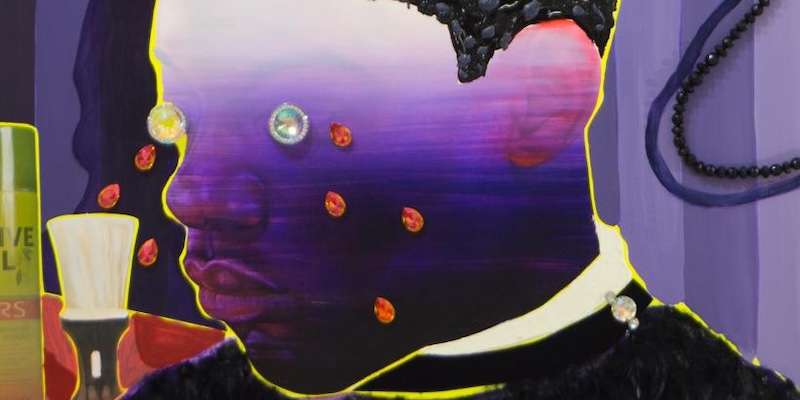World
Capturing the Strange Terror of the World: 7 New Poetry Collections to Read This August

Written in the fourth year of the Nazi occupation of Warsaw, the Polish poet Czesław Miłosz’s “The World,” subtitled “A Naïve Poem,” was an idyllic vision of a prelapsarian world, “written in the style of school primers,” whose final section included a phrase that evoked an innocent understanding of art: “And the whole Earth is like a poem / While the sun above represents the artist.” The purpose of the poem was hope and comfort when the world itself appeared to be coming to an end.
Article continues after advertisement
The poets that I’ve gathered for August are all sophisticated practitioners of the art, with diverse methods and often skeptical intentions, and yet the “naïve” notion that their work is an attempt to represent the world in its strangeness, terror, and immensity underlies each book.
The poets may arise from specific places—Danez Smith’s Twin Cities, Jason Koo’s Brooklyn and Cleveland, Daniel Borzutzky’s Chicago, Nam Le’s Vietnam of the memory—or they may reside in a more figurative landscape—Andrea Cohen’s “any Springfield,” Rae Armantrout’s “like sunset in LA,” Borzutzky’s borderlands of the Americas. Or somewhere in between, like Carl Phillips’s classically inflected eternal present, in which even surfers are always on the verge of being turned “into myth.”
But wherever they are located, they all reach from the core of their poetic insight and eloquence towards something vaster, an individualized voice that speaks a personal truth about the wider world: “world / versus what I’ve called the world versus what I’ve made of it /and shaped to my taste…” (Phillips) “they say the international frontier is just a gesture but the border-crossing ‘mice’ know it is / infinite” (Borzutzky) “In the midst of the evident collapse, / I’m bored. What is there left / to say, I say.” (Armantrout) “Every pedestal— / a monument / to dust.” (Cohen)
In a time of catastrophe, both real (the pandemic, wars and invasions) and portending (the collapse of civic society, climate apocalypse), the desire to encompass the world and remake our experience of it into art remains one of the few, near-universal aspirations of poetry. But perhaps this is merely another unattainable dream. Danez Smith offers words of sympathy for poetry itself: “i feel bad for poems / all we expect them to hold.”
*
Rae Armantrout, Go Figure
“Words were gods— / arbitrary, deathless,” writes Rae Armantrout. In books that have appeared since the 1970s and by now transcend the labels (Black Mountain, Language Poetry) attached to mentors and peers like Denise Levertov and Ron Silliman, she has honed an enduring art on the ephemera that constitute a consciousness in motion through the present. What Edward Said called “the prerogative of late style,” “the power to render disenchantment and pleasure without resolving the contradiction between them,” is on lavish display in her new collection.
Take her approach to the pandemic. By now we’ve seen so many pandemic poems that my eyes blear a bit when I see one on the page, but Armantrout’s resolutely unsentimental one focuses on the fact that a virus is a “set of instructions / for making instructions,” “pure, unencumbered / value,” “money making money / in a host’s cell,” which reminds me of the murderous, anti-vax shenanigans of the leader and party whose main purpose is making more money for the already rich.
Offering the pleasures of disenchantment, her use of kitsch, quiddity, and juxtaposition remains wryly cogent in its query of meaning (“If all that / glide and glimmer / was inside me, / meant me”) and its exposure of human nature, especially the inane, American variants: “Put these pictures / in correct order: / two turkeys installed / in a swank hotel, / then pardoned / by a president, / earthrise / in a copper locket, / Yosemite Sam / firing pistol rounds / to the tune / of a dentist’s drill.”

Daniel Borzutzky, The Murmuring Grief of the Americas
Daniel Borzutzky, the son of Chilean immigrants, once spoke of Roberto Bolaño’s use of “digressive narratives” and “imaginary” catalogues, of “his focus on exile and on the lingering effects of fascism.” In his new collection, Borzutzky portrays a violently off-kilter world that the great Chilean novelist would have recognized, late-capitalist, resurgent fascist, apocalypse impending, as he ranges along the United States borders and across the Americas, whose “murmuring grief” arises from the unceded territories where we all sleep: “The bed is not a place of peace there are bodies under the bed there are children hiding / with the bodies under the bed.”
Often in playfully numbered titles (“Lake Michigan, Scene #2123,” “Apparatus #519”) that suggest a vast, subterranean repository of unpublished works across several lifetimes, Borzutzky employs a digressive catalog of shifting, unstable poetic devices—jazzlike repetition, gallows-humor gags (“so many mass graves says the poet not enough time to write them”), hyperbole, unreliable speakers, fantasy, and what feels like anecdotes from actual life—to achieve “the resurrection of the collective grief,” “[t]he poetry of the shattered bone that keeps breaking so beautifully in the atrium of the airbreathdeath theatre.”

Andrea Cohen, The Sorrow Apartments
Feeling adjacent to the drama of other lives and adjacent to the sorrows of one’s own may be the fate of any astute observer and poet. In Andrea Cohen’s poem “Adjacent,” the speaker hears the sound of someone bawling in the next room, “listening, the way a child / warm and dry might / listen to rain.” The comfort is the tenuous one of a child who feels safe in bed at night but who knows that the sorrows of the outside world will soon saturate her life.
Cohen’s eighth collection moves, with a witty and colloquial directness, among adjacencies that bestow the hilarity and comfort of insight but leave us immersed in original sorrows. In one poem the speaker explains that a man named “Lamar T.” was “a pallbearer / at my mother’s / wedding,” while in another, a stranger who admires her father pays the standard compliment about him being the father he never had, leading the speaker to think, “he / was the father I didn’t have either.” We’re left pondering the vastness of unspoken familial woes.
While many of the poems are in Cohen’s characteristic, minimalist mode, brief, slender, with internal rhyme, that move like a gymnast’s salto seeking to stick a perfect landing (in her case, a little fillip of epiphany), several of the best poems here are more capacious, storytelling fantasies, like “Purchase,” a riff on the life of the young man whose wallet the speaker finds (“You’re an organ / donor. Parts of you may / one day spill into others, / the way your wallet / tumbled from you”).
In either mode, Cohen offers high-flying pleasures that transform the sorrows of memory, family, and failed love into the winged perceptions of a particularly charming and vigilant poet: “every we I knew is commemorated in a paper / weight, but when no one’s looking, the papers / slink off.”

Jason Koo, No Rest
I know what it means to be invisible. I also know what it means to become notionally visible only for my version of visibility to be deemed the “wrong” kind. The particular invisibility of Asian American men (“being nowhere a notion in the American imagination”) and the ways in which we work to subvert it into visibility—into love, play, career, a fulfilled life—are a primary focus of Jason Koo’s funny, frank, fiercely readable collection.
In self-declared “couplets,” unrhymed two-line stanzas, which tumble down the page through an incessant, storytelling propulsion, Koo sketches the moral labyrinth of a man neither young nor old, Black nor White, who yearns to find a woman to love and a secure place in academia and the poetry world, but who feels a sense of meaninglessness “derived from feeling / that I am failing to meet a cultural norm / of manhood nearing 40.”
His analysis of life, both his own and that of larger existential quandaries, ironically assumes the obsessive proportions that he calls “the model minority way,” here a conscientiousness in thrall not to straight As but to truth and completion. No one eludes his inquisition, not the high-school friend who is savagely recessive in the good old boy way but who later commits suicide, the users of the Tinder app for whom the speaker is mostly a non-entity, the university administrators who permit indolent students to scotch a promotion by giving the diligent speaker bad evaluations, and the Yale-educated poet himself, for whom writing is a self-aggrandizing, self-berating act of privilege, “a form of generosity to ourselves.”
What this restless portrayal of consciousness succeeds in doing is to hold “open / the Open of the world” while providing a record of a life that others have ignored and discarded, the better “to preempt the emptying of me.”

Nam Le, 36 Ways of Writing a Vietnamese Poem
“I am loud with every flavour, every humour,” Nam Le writes, “equally of north, south, east, west.” In his shimmering poetry debut, the Vietnamese Australian author of the acclaimed story collection The Boat commands many aspects of his Vietnamese identity—each poem employs a distinct style or thematic aegis—to achieve an artistic appropriation of his own imposed otherness. “Start with the Fall, go back or forth, / Through bombs or boats, / Across all the killing fields of thought.”
The title may call to mind “Thirteen Ways of Looking at a Blackbird” (or Raymond Patterson’s “Twenty-six Ways of Looking at a Blackman”), but the approach is closer to the discrete, full-bodied evocations of another modernist work, Ulysses, with Le taking a poetically succinct odyssey through the conventions of diasporic writing (the alienation of immigrant parents, the repossession of erasure poetry) and across the deformations of history, including cultural stereotypes, racial epithets, colonialist caricatures, and linguistic, sexual, and other forms of deracination. “Dis place ment / Everything to me,” he says. “What’s Vietnamese in me / Could fit in a poem.”
In the masterful “[15: Dire critical],” a play on “diacritical,” the various marks that distinguish tones and vowels in Vietnamese writing become a reclamation of Le’s ancestral world through transfigurations of a mother’s memories of the war: “Má (high rising) is mother; is also cheek, as in slack of flesh / made gaunt, sallow from malnutrition, as in from agent orange, / from yellow rain, from grief, as in to which / I turn my face. As in turn the other.”
The effect is to subsume the dire effects of war and racial and cultural alienation into a delicate personal lyricism that points the way to what comes later, something “post-racial, post-glacial,” “where nothing / need mean more than itself.”

Carl Phillips, Scattered Snows, to the North
In Carl Phillips’s ravishing new collection, the elegiacal vision, still haunted by an erotics of loss (“I’ve forgotten /entirely what it felt like to enter his body / or to be entered by his”), has become enraptured with belatedness, “those afternoons whose / diminished music we’ll soon enough / lie down in.” The lateness isn’t the sign of a life in its dotage but the work of an intelligence grinding through the repeated exigencies of its own conflagrations, “the mind done with signaling, letting its watch fires, one by one, / go out: the renegade glamour of late fall.”
The poetry here arrives at the other side of the fires, in sinuous complexes of metaphor that revive experiences through the glamour, renegade, melancholy, of their ruins. Phillips speaks gorgeously of how, with age, the “mind’s high watchtowers” still remain “under guard against siege by barbarians,” then switches the image to the “light reflected off / the blade of a knife” from a disembodied, gloved hand.
The glove, it becomes clear, enshrouds a master poet’s hand, and the knife edge harbors many entrancing reflections: how the brokenness of a lover’s face is like “a Paleolithic fragment of a reindeer antler decorated / with an image of a horse” or how the last portion of a life requires a wise, if elliptical serenity to avert the blinding glare of self-recognition: “I could see my face, / tilted there, like a solar eclipse viewed indirectly, which / is the proper way, in a basin of water.”

Danez Smith, Bluff
“ask not what your country can do for you / ask if your country is your country (it’s not),” writes Danez Smith in their fourth collection. The indelible scars of slavery and racism, the murderous limb of a racist policeman (“the gravity under that knee”), the destruction of Black neighborhoods by freeways and mobs, the unjust disquiet that Blacks feel walking in the outdoors, the dubious flattery of cultural appropriation (“even the blues went white”)—all of these living contexts would justify lifelong rage and alienation.
Add to this the scorn of other Blacks about the speaker’s queerness (“my people ain’t even my people. their utopia / calls for my death & they dress for the occasion”) and the late-capitalist monetization of everything (Pride Month itself “an invitation to spend your grief”), and you fall off the edge of some boundless, internal bluff: “arachnid moods—self-cornered…the dark season lasted years, swallowing seasons.”
But Smith revels in another meaning of bluff, the plainspoken bluntness, the confident assertion of self-value that converts the righteous otherness of a Twin Cities native into a bold, nation-spanning vision. They’re skeptical of the Whitmanian notion that the self contains multitudes (“i’m not that damn large!”), but what they assemble is something both vast and individuated, averting a descent into the politically programmatic through a lovely, unobtrusive sense of the poetic mot juste: “I’ve always been scared of the cops—the fear was passed like a name.” “some lives matter / only they hood.” “let America drown in our waves, if a bullet must touch us / let it graze soft as a bristle brush.” “& may we not be the scars they stitch lonely in the mothergone dark.”
Ambitious, audacious, compelling, Bluff may be the book we turn to when we ask for a portrait of 2024, with its vision of a disconsolate moral sensibility that remains attuned to the paradoxes of our ongoing civic, tribal, and environmental self-destruction: “love me now. / tomorrow has no face. / the children are on their way to kill us. / & we must feed the children.”










